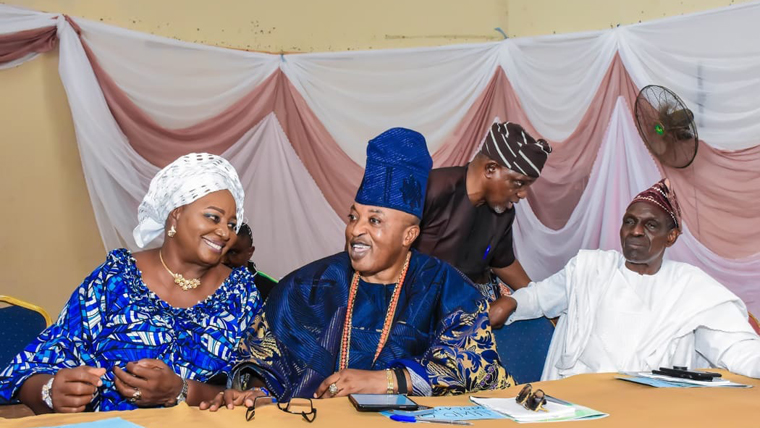
For many years, the ancient town of Iwo, Osun State, had been living in past glory. To say its development has been retarded is to say the least, as its growth conundrum has become intractable in recent past.
To reposition the town, a retreat was recently held on a five-year development plan under the auspices of Iwo Board of Trustees (IBOT), to reposition the town and put it on the right pedestal for speedy growth.
The major objective of the retreat is to ensure all stakeholders build consensus across diverse groups in Iwo political economy on a most competitive development path in the next decade.
While delivering his speech, titled: ‘Iwo: Resolving Development Conundrum,’ at the Iwo City Hall, Iwo, venue of the retreat, the President of IBOT, Prof. Lai Olurode, regretted that the previous development agenda of the community had largely been ad hoc and spontaneous without much concentration being conceded to science, cultural sensitivity and sustainability.
“Hence, the plethora of abandoned projects across the country. Iwo has its fair share of this crisis – the abandoned post office and NITEL building, among others. A visit to our local council offices is a sad tale of woes and lamentation. It is high time we charted a development path in which all critical stakeholders will have a buy-in.
“As a word, development is contentious and emotional. It could be simultaneously regarded as a science and as an art. Primarily, though this is debatable, some beat their chest to pontificate that it wears all the paraphernalia of the rigour of a scientific procedure.”
While noting that at its inception, Western theorists talked of stages of development that every country aspiring to attain development must follow, Prof. Olurode said many countries fell victim of the propaganda, yet, it never attained development as paraded.
“It took time to realise that development as a handout that can be outsourced or borrowed is arrant, irritating and debilitating stuff. The so-called development experts continue to be exported to most of Africa at prohibitive costs but, the farther the continent is from even incubating or smelling not to talk of tasting or touching development.
“But why is this so? The explanation is in the plain fact that development must be regarded more as a work of art and thus not mechanical nor can it be packaged and patented for export to other countries. Unfortunately, these countries in the periphery must have fallen victim of exploitative instincts of the West and its civilisation mission.
“They cannot love Africa more than Africans. Even at the heights of its development tragedies, Africa continues to subsidise Europe and North America, as net flow of resource transfer remains persistent. Aids are rarely beneficial to Africa in the final analysis. Consultant fees and sundry charges take a larger portion of the so-called aids and loans. In the business of development, philanthropic gestures are rare. Does every country ask questions as to what’s in it for them?
While charting a new path for all the critical stakeholders to buy in, Don put forward some questions that might assist in the holistic repositioning of the ancient town in the next few years.
“The key question is what picture of Iwo do we want to paint in the next five or 10 years regarding the critical nodes of change – education, health, spatial integration, especially rural-urban linkages, security architecture, gender, youth empowerment and the like?
“What resources do we need to activate these and where will the resources come from? In the context of our diversity, how can the leading elite and the people build consensus around these issues? What roles for Iwo people in the Diaspora and other friends of Iwo? Certainly, Telu, the first, continues to dominate social media. But, the question is how can we turn around this cultural capital and leverage on it for development beyond media attention?
“Do we have a robust expression of volunteer services that can be explored to attain these lofty goals? How can we build synergy between the Palace, local council authorities and the people to achieve our objectives for Iwo?
“How can IBOT as a leading change agent in facilitating, coordinating, motivating and modifying these efforts be trusted? How can IBOT earn that status of a most trusted and exceptional institution in Iwo,” he asked rhetorically.
Prof Olurode noted that unless answers to those questions are achieved, a sustainable path to development in Iwo would remain difficult to achieve, adding that the Iwo development conundrum will remain intractable.



